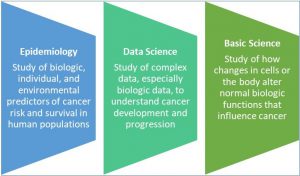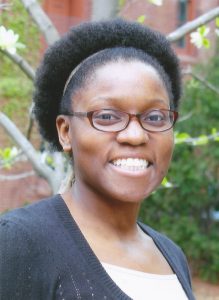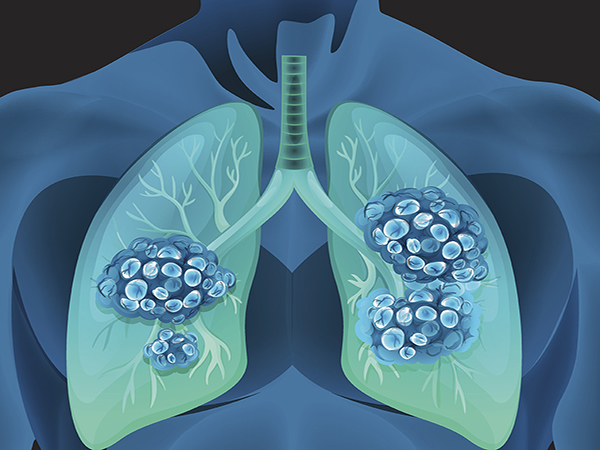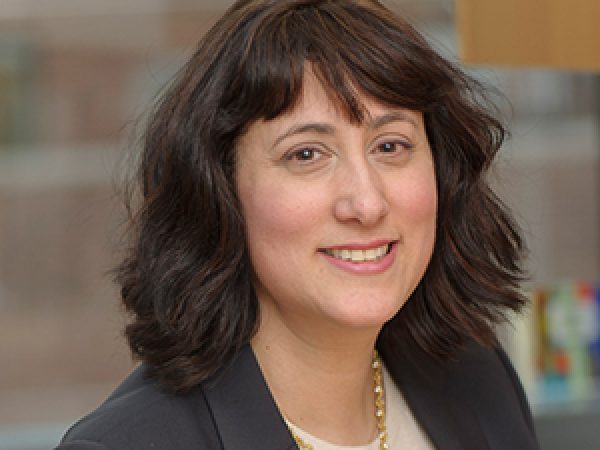Integrative Molecular Epidemiology Unites Cancer Research Disciplines
Cancer is complex, and the tools that we need to understand how it develops and progresses come from many different scientific fields. Integrative Molecular Epidemiology, known as IME, brings together epidemiologists, data scientists, and basic scientists, along with many clinical specialties, to jointly study cancer from different angles. By its very nature, IME is a truly transdisciplinary field that unites researchers from varied backgrounds. The American Association for Cancer Research (AACR) supports this field through a longstanding working group.

Recently, the AACR held its seventh Integrative Molecular Epidemiology Workshop. Aimed at accelerating the training of the next generation of cancer researchers, the workshop included discussions on study designs, data interpretation, and the appropriate use of tools and techniques, along with hands-on laboratory sessions. The Molecular Epidemiology Working Group Steering Committee asked a participant and faculty member to describe their experiences at the workshop.
Participant Perspective
By Traci Nicole Bethea, PhD
“Cancer” is a term that describes possibly thousands of heterogeneous diseases characterized by abnormal cell growth and proliferation. As biological and computational tools continue to advance, the detail with which we are able to describe, classify, and intervene upon tumors is improving. Integrative molecular epidemiology is essential to the development and conduct of impactful studies that leverage expertise from diverse disciplines.
We need the integration of resources to address unanswered research questions that will reduce the global cancer burden. The challenge facing scientists, clinicians, and patients alike is daunting, but the AACR IME Workshop provides an excellent opportunity to learn how to do this important work through team science. The workshop provides training in the “nuts and bolts” of IME research with hands-on exercises and engaging discussions about important considerations for the design and conduct of IME studies.
One of the greatest benefits of the workshop for me has been the chance to learn and practice the language and concepts of other disciplines. No investigator will be an expert in every technique, but learning how to discuss research questions and approaches with scientists from both wet labs (where biological and chemical experiments take place) and dry labs (where computational analysis takes place) and from the clinic is a huge step toward building productive collaborations.
Another benefit of the workshop is the informal discussions with faculty members and participants. The workshop offers a remarkable opportunity to receive research and career mentoring and to identify collaborators across career stage and type of institution. On the first day, I was unsure whether I was prepared enough to actively participate in the Workshop, but in the end, I found it to be a great learning environment with excellent instructors, stellar staff, and the potential to significantly advance my research program. I hope to attend again and learn even more!
Faculty Perspective
By Shelley Tworoger, PhD
It is not practical or ethical to answer critical questions solely through randomized controlled clinical trials or model systems: Observational research also plays a key role in tackling the complexity of cancer. IME brings all elements together to create a strong focus on precision prevention and treatment of cancer that will improve public health.
The AACE IME Workshop is a fantastic course that exemplifies team science and scientific diversity at its best! More than 340 scientists have participated in the workshop over the past seven years. This year, the 49 workshop participants came from eight different countries and represented 14 different scientific disciplines. The attendees were graduate/medical students, postdoctoral/clinical fellows, junior and senior faculty. The presentations cover topics from genomics to metabolomics to the microbiome as well as practical considerations in how to design studies to answer important scientific questions. Speakers shared examples of how IME research is already impacting patient outcomes in areas like health disparities, pediatric oncology, and personalized medicine, providing inspiration to attendees!
It is truly a pleasure being on faculty at the AACR IME workshop. Scientific methods change rapidly. Through my participation in the workshop, I learn something new every year as the faculty discuss cutting-edge tools and ideas. Also, the workshop participants always have new ideas and approaches that I have not thought of before. We all learn together and teach each other. It is so exciting to see the enthusiasm, creativity, and passion that drives the up-and-coming generation of cancer researchers. We are always looking for diverse participants, so be on the lookout in January/February 2020 for the applications to next year’s workshop!
Traci Nicole Bethea, PhD, is an assistant professor at Boston University School of Medicine and an epidemiologist at Slone Epidemiology Center at Boston University. Shelley Tworoger, PhD, is the associate center director of Population Science at the Moffitt Cancer Center in Tampa, Florida.





